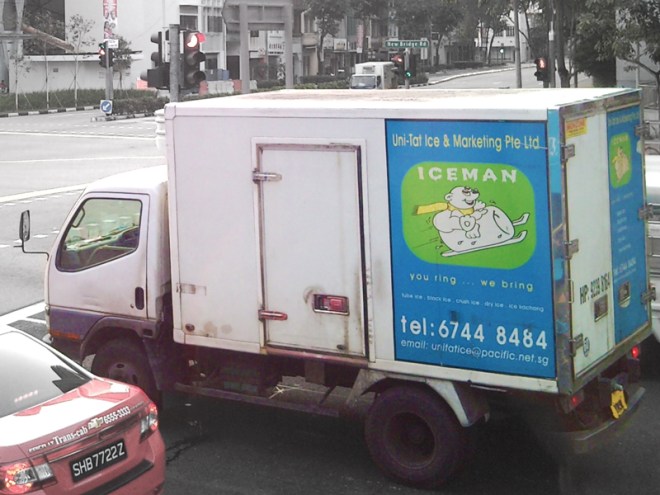The guy who posed for this ubiquitous crime-fighting cardboard cutout is a minor celebrity in Singapore. His marriage was much celebrated—and much mourned.
I’d like to point out that “low crime does not mean no crime”. Singapore is safer and cleaner than just about anywhere else, but it’s not utopia.
I’d also like to point out that the phrasing of the sign is just weird, even if you’re accustomed to the term “shop theft” rather than “shoplifting”.
I would understand if it said “shoplifting is a crime”. Maybe there are people who rationalize the act referred to as “shoplifting” by thinking of it as the harmless liberation or redistribution of small items. Euphemisms, slang, and jargon all obscure what they refer to: the word businesses use for “unexplained” decreases in inventory—decreases largely due to theft—is “shrinkage”.
As it is, the sign is just providing an intuitive definition. It’s as if someone put up a sign that said “cars are vehicles”. Duh! I can’t imagine anyone being able to construe the word “theft” in any way that doesn’t involve crime.
I would understand if the sign said “shop theft is stupid”, because then the sign would be assuming you know what shop theft consisted of but not how it should be characterized.
Just because the message is a tautology with almost no moral weight doesn’t mean the sign is useless, however. At least one of the pop-psychology books I’ve read said studies show that displaying faces, even if they are cartoon faces, can decrease bad behavior by making people subconsciously feel that someone is watching and judging them. The abstract idea of someone’s eyes pointed in your direction is sometimes enough to tip the balance! The cardboard cutout is not magic, but it does help.












